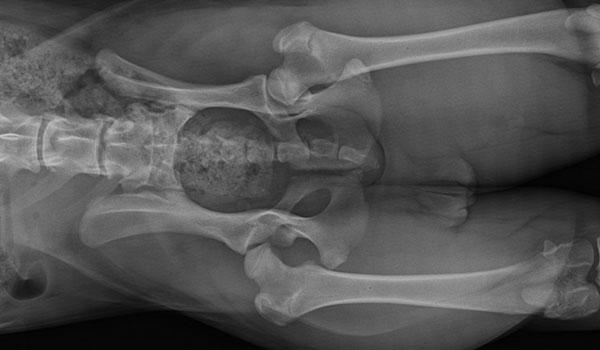If you’re a pet owner, navigating the world of veterinary care can sometimes be confusing, especially when it comes to referrals for specialist treatments. The Royal College of Veterinary Surgeons (RCVS) has recently updated its guidance on how veterinary referrals should be handled, aiming to make the process clearer and more transparent for both vets and pet owners. This updated guidance ensures you, as a pet owner, are well-informed about the expertise of the professionals treating your pet.
Here’s what you need to know to make the best decisions for your pet’s health when it comes to referrals:
1. Understanding the Expertise of Referral Vets
One of the key updates is the clarification around how vets should explain the expertise of the professionals they refer you to. If your pet needs treatment beyond what your regular vet can provide, they might suggest seeing another vet with more specialized skills.
Your vet is now required to clearly explain the qualifications of the vet they are referring you to. There are specific titles such as “RCVS Specialist” or “Advanced Practitioner” that carry defined levels of expertise. For example:
RCVS Specialists are vets who have completed extensive training (at least three years) and passed a high-level examination in their area of expertise.
Advanced Practitioners have additional qualifications and experience but may not have undergone the same level of specialised training as a Specialist.
It’s essential your vet explains these differences and offers you options. If your vet recommends an Advanced Practitioner, they should also let you know that a referral to an RCVS Specialist is another option, depending on your pet’s needs.
2. Accurate Terminology Matters
Another important point in the updated guidance is that only recognized titles like “RCVS Specialist” or “Advanced Practitioner” should be used to describe the person who will treat your pet. Terms like “consultant” or “referral surgeon” are considered misleading and could give the impression of a level of expertise that may not be accurate.
Always ask about the specific qualifications of the vet your pet is being referred to, and make sure they match these recognized titles.
3. Referrals to Veterinary Centres
If your pet is being referred to a veterinary centre rather than an individual vet, it’s important to understand that not all vets in the centre may have the same qualifications. The new RCVS guidance highlights that your referring vet should inform you about the varying levels of experience among the vets at the referral centre. For example, you might assume your pet will be seen by a Specialist when, in reality, they could be treated by a vet in training (such as a resident) who may not yet have specialist qualifications.
To avoid confusion, ask about the specific vet who will be responsible for your pet’s care at the centre.
4. Conflicts of Interest Must Be Disclosed
Transparency is key when it comes to veterinary care, and the RCVS has emphasized that vets must disclose any potential conflicts of interest when making referrals. This means your vet should tell you if they have a financial or professional link to the practice they are referring you to, such as:
- Referring you to a centre owned by the same group as their practice
- Referring to a peripatetic surgeon (a freelance specialist) who works out of their practice and whose services financially benefit the practice
Being informed about these connections allows you to make a fully informed decision and ensures that your pet’s care is always in their best interest.
Why Is This Update Important?
The RCVS has made these changes because there were concerns that previous guidelines were not always followed or fully understood by vets. These updates aim to ensure that pet owners, like you, have all the information needed to make the best decisions for your pet.
In the past, there have been cases where pet owners were unaware that their pet was being treated by a non-specialist vet, which led to complications or even serious health risks. This updated guidance places responsibility on the referring vet to be clear about the qualifications of the professionals they are recommending.
The differences between an Advanced Practitioner and a Specialist are significant, especially when it comes to complex procedures like surgery. Specialists undergo rigorous training, including years of hands-on experience and exams, which means they are better equipped to handle highly specialised or complex cases.
What Should You Do When Your Pet Needs a Referral?
When your vet recommends a referral, here are some steps you can take to ensure your pet gets the best care possible:
- Ask about qualifications: Make sure you understand whether your pet is being referred to an Advanced Practitioner or an RCVS Specialist.
- Get a clear explanation: Ask your vet to explain the difference between the two and why they are recommending a particular option for your pet.
- Inquire about the vet who will treat your pet: If you are being referred to a veterinary centre, make sure you know who will be treating your pet and what their qualifications are.
- Check for conflicts of interest: If your vet has a connection to the referral practice or the vet they are recommending, make sure this is disclosed to you.
By staying informed and asking the right questions, you can be confident in the care your pet will receive.
Conclusion
The updated RCVS guidance on veterinary referrals is designed to promote transparency and ensure pet owners can make informed decisions about their pet’s care. Understanding the qualifications of the vets involved, asking the right questions, and being aware of any potential conflicts of interest will help you choose the best referral option for your pet.
Your vet should be your partner in this process, providing you with clear and accurate information to support your decisions. Ultimately, this update is a positive step forward for the veterinary profession, pet owners, and—most importantly—your pets.













